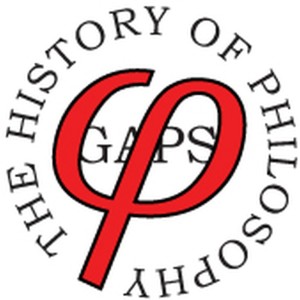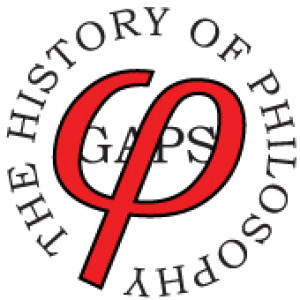Episodes

Sunday Jun 08, 2025
HoP 471 Unclear and Indistinct Ideas: Debating the Meditations
Sunday Jun 08, 2025
Sunday Jun 08, 2025
Descartes’ Meditations caused controversy as soon as it appeared. In this episode we look at criticisms including the “Cartesian Circle,” and how Descartes answered them.

Sunday May 25, 2025
HoP 470 Gary Hatfield on Descartes' Meditations
Sunday May 25, 2025
Sunday May 25, 2025
We're joined in this episode by a leading expert on one of the most famous works of philosophy ever written: Descartes' Meditations.

Sunday May 11, 2025
HoP 469 Ghost in the Machine: Cartesian Dualism
Sunday May 11, 2025
Sunday May 11, 2025
The word “Cartesian” is synonymous with a radical contrast between mind and body. What led Descartes to his dualism, and how can he explain vital activities in humans and animals having rejected the Aristotelian theory of soul?

Sunday Apr 27, 2025
HoP 468 Perchance to Dream: Descartes’ Skeptical Method
Sunday Apr 27, 2025
Sunday Apr 27, 2025
How Descartes fashioned a “method” to repel even the strongest and most radical forms of doubt, with the cogito argument as its foundation.

Sunday Mar 30, 2025
HoP 466 Well Hidden: Descartes’ Life and Works
Sunday Mar 30, 2025
Sunday Mar 30, 2025
How René Descartes’ understanding of his own intellectual project evolved across his lifetime.

Sunday Feb 02, 2025
HoP 462 Freedom to Philosophize: Introduction to Early Modern Philosophy
Sunday Feb 02, 2025
Sunday Feb 02, 2025
What is Enlightenment, anyway?

Sunday Sep 15, 2024
HoP 452 - Better Than Nothing - Metaphysics in the Second Scholastic
Sunday Sep 15, 2024
Sunday Sep 15, 2024
Did the metaphysics of Francisco Suárez mark a shift from traditional scholasticism to early modern philosophy?

Sunday Sep 01, 2024
HoP 451 - Could’ve, Would’ve, Should’ve - Free Will in the Second Scholastic
Sunday Sep 01, 2024
Sunday Sep 01, 2024
What was Luis de Molina trying to say about human free will with his doctrine of “middle knowledge,” and why did it provoke such controversy?

Sunday Jul 07, 2024
HoP 449 - Anna Tropia on Jesuit Philosophy
Sunday Jul 07, 2024
Sunday Jul 07, 2024
We learn from Anna Tropia how Jesuit philosophy of mind broke new ground in the scholastic tradition.

Sunday Jun 23, 2024
HoP 448 - Secondary Schools - Iberian Scholasticism
Sunday Jun 23, 2024
Sunday Jun 23, 2024
The “School of Salamanca,” founded by Francisco Vitoria, and the commentators of Coimbra are at the center of a movement sometimes called the “Second Scholastic.”

Sunday May 26, 2024
HoP 446 - Not Doubting Thomas - the Aquinas Revival
Sunday May 26, 2024
Sunday May 26, 2024
Cajetan, Bañez and other thinkers make Aquinas a central figure of Counter-Reformation thought; we focus on their theories about analogy and the soul.

Sunday Apr 28, 2024
HoP 444 - The Dark Night Rises - Spanish Mysticism
Sunday Apr 28, 2024
Sunday Apr 28, 2024
Teresa of Ávila and John of the Cross push the boundaries of individual spirituality and offer philosophically informed accounts of mystical experience.

Sunday Jan 07, 2024
HoP 436 - Unpathed Waters, Undreamed Shores - Robert Fludd
Sunday Jan 07, 2024
Sunday Jan 07, 2024
Our last figure of the English Renaissance undertakes daring investigations of chemistry, medicine, agriculture, and cosmology – and gets accused of magic and Rosicrucianism.

Sunday Oct 29, 2023
HoP 431 - Calvin Normore on Scholasticism
Sunday Oct 29, 2023
Sunday Oct 29, 2023
A discussion of the history and philosophical significance of scholasticism from medieval times to early modernity, and even today.

Sunday Apr 24, 2022
HoP 395 - Music of the Spheres - Johannes Kepler
Sunday Apr 24, 2022
Sunday Apr 24, 2022
Johannes Kepler fuses Platonist philosophy with a modified version of Copernicus’ astronomy.

Sunday Jun 06, 2021
HoP 374 - Opposites Attract - Nicholas of Cusa
Sunday Jun 06, 2021
Sunday Jun 06, 2021
The radical negative theology of Nicholas of Cusa, and his hope of establishing peace between the religions of the world.

Sunday Jan 31, 2021
HoP 365 - Spirits in the Material World - Telesio and Campanella on Nature
Sunday Jan 31, 2021
Sunday Jan 31, 2021
Was the natural philosophy of Bernardino Telesio and Tommaso Campanella the first modern physical theory?

Sunday Oct 25, 2020
HoP 358 - Of Two Minds - Pomponazzi and Nifo on the Intellect
Sunday Oct 25, 2020
Sunday Oct 25, 2020
Pietro Pomponazzi and Agostino Nifo debate the immortality of the soul and the cogency of Averroes’ theory of intellect.

Sunday Mar 08, 2020
HoP 344 - The Count of Concord - Pico della Mirandola
Sunday Mar 08, 2020
Sunday Mar 08, 2020
Pico della Mirandola argues for the harmony of the ancient authorities, draws on Jewish mysticism, and questions the value of humanist rhetoric.

Sunday Feb 09, 2020
HoP 342 - Denis Robichaud on Plato in the Renaissance
Sunday Feb 09, 2020
Sunday Feb 09, 2020
An interview with Denis Robichaud on how, and why, Plato was read in the Italian Renaissance.

